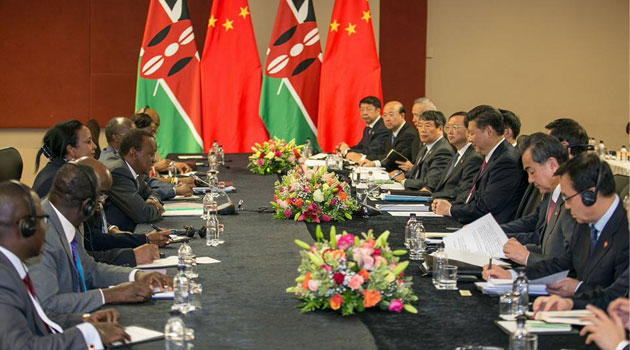China-Africa relations without Africans’ contributions

The piece relates that, at times, Africans are not invited to debates, conferences and other key platforms on Africa-China relations even though the topic is about Africa’s and Africans’ relations with China and Chinese.
Recent discussions and exchanges among members of a research network on Africa-China relations about the diversity of participants at a conference that very network is organising brought me back to this idea I had a few years ago to write about Africa-China relations being discussed without Africans.
Nearly two years ago, I was contacted by a colleague from a United States think tank to comment on a workshop programme on Africa-China relations and possibly suggest topics, which are critical and missing in the Africa-China debate. To my surprise, when I had a glance at the names of the participants, I wrongly realised that there were Americans, Chinese but no African participants were invited to the workshop the US think tank was organising because biographies were not attached. In fact there were two Africans joining the talks. But my quick reaction to the colleague in the US was how come you discuss Africa-China issues without any African scholar. The answer was, there are Africans and the two Africans were pointed out to me on the list of participants.
In fact many meetings on Africa-China take place without a single African participant or contributor convened.
This is not something new I realised. For someone who has been working on Africa-China relations since my doctoral studies, I discovered that, often, workshops, conferences and meetings related to Africa-China take place in Europe, North America and in China without the presence of a single African participant being invited. In cases where Africans are invited to join these events, they are underrepresented and often there is this idea from Western scholars to justify the absence of African scholars that there are not many Africans who work on topics related to Africa-China or no African knowledgeable in the field of Sino-African relations could be found to contribute to the debate. At times Africans who do not work on these topics at all are invited to fill the void.
The reality is that there are a lot of Africans who work and explore issues related to Africa-China relations but in their respective areas of research and not affiliated to a China studies institute or Asian studies department or any institution, which focuses on these subjects. And more and more I discover those Africans who work on Africa-China all around the world. Therefore these meetings related to Africa-China, which take place without the presence of African scholars between Europeans, Americans and Chinese have their own motivations and raison d’être. Are people participating in and contributing to these conferences, workshops or meetings more knowledgeable than their African counterparts or are these meetings about “knowledge monopoly” as often wrongly thought by many Western scholars?
Maybe as we saw it happening in other fields of research, there is this bad trend of: “we know better than you Africans” from non-Africans! Such behaviour is often seen when Westerners discuss Africa particularly in the field of African Area Studies. A non-African scholar (just to generalise) who has been to an African country for his/her studies for few weeks would pretend that he/she knows that country more than its citizens and at times more than a scholar from that country who works on topics related to that country and its people. On several occasions, I encountered such behaviour from Western scholars who bluntly refuse to accept comments, suggestions or criticisms from African scholars who know more than them in their area or place of research as if their argument should not be challenged by an African. This prevails at times in the field of Africa-China research with researchers who neither know Africa nor China and who have never worked either on Africa or China but claim to be “experts” on Africa-China relations!
As far as I know, academic freedom enables each of us based on research ethics to present or publish his/her work in an objective way even though we know that objectivity in research is at times biased since the beginning of the process of a research project of which the start is determined by securing funding from organisations which have their own views and goals on the outcomes of the selected research proposals or projects.
While diversity in disciplines is considered in Africa-China meetings, conferences or workshops, there is less geographic diversity among contributors.
When workshops, conferences or meetings on area studies in general and Africa-China relations in particular are being held, common sense and ethics would entail to bring participants from the areas/regions being studied even though these meetings take place in other continents and researchers might have different perspectives and opinions. Otherwise it will resemble the behaviour of “we know better than everyone else”; even those directly concerned by the topics. Often researchers in Africa-China relations from Western countries talk about trilateral cooperation between Africa-Europe-China or Africa-US-China to “help” Africa or learn from what China does in Africa to address their engagement with African countries. But the truth is Africans are not invited to these so-called trilateral cooperation debates.
But I wonder why the US, Europe or China refuse to learn from Africa. Should Africa always learn from the US, Europe or China? While the answer for many would be yes, there are plenty lessons indeed these countries and their citizens should and can learn from Africa and Africans.
* Daouda Cissé is an independent researcher based in Montreal, Canada. His research focuses on China and Africa-China relations

They are discussing how to
Permalink
They are discussing how to best exploit you and your resources so they don't really need your input for that.